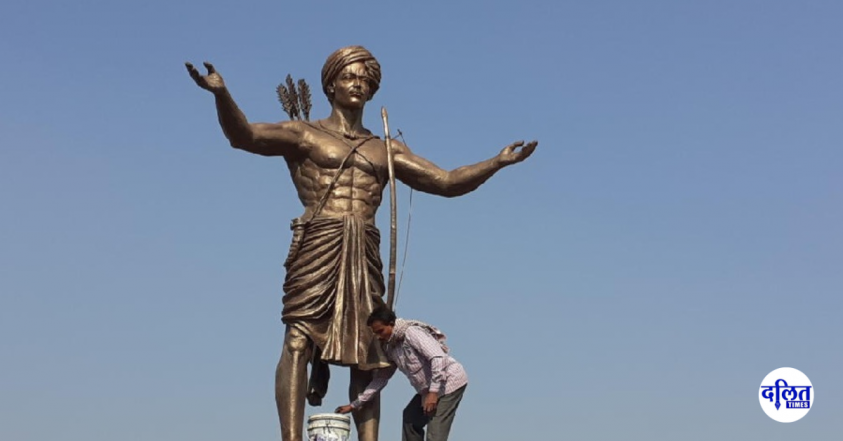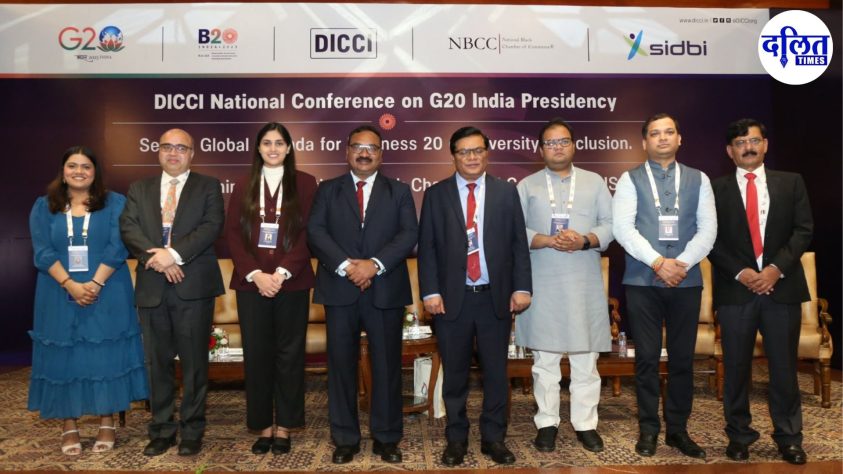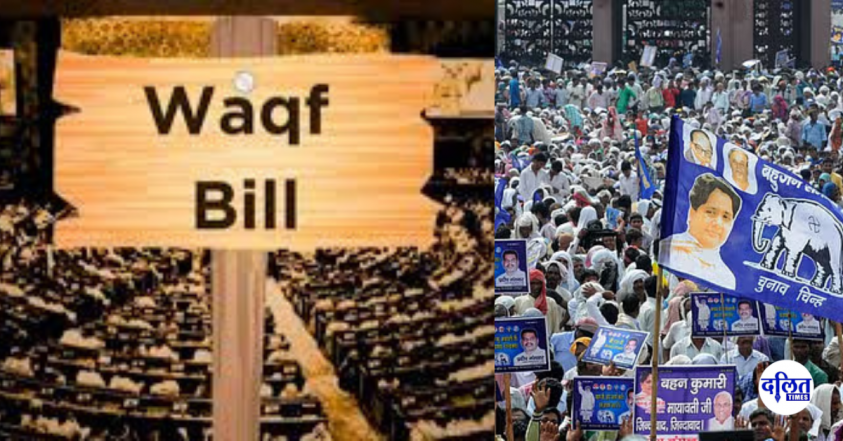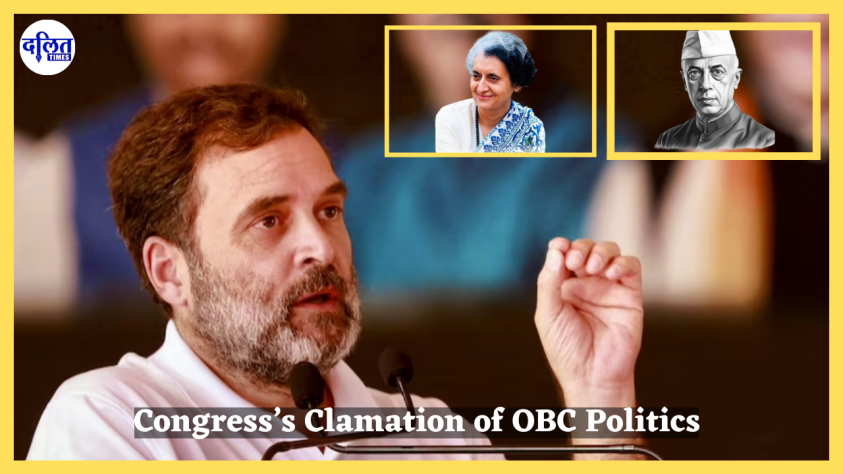In a country where history is often told through the voices of emperors and upper-caste reformers, the story of Birsa Munda stands as a flame of resistance—fierce, indigenous, and uncompromising. Born in 1875 in Ulihatu village (present-day Jharkhand), Birsa was not merely a freedom fighter; he was the soul of a people rising against colonial plunder and caste-Hindu domination.
The Making of a Revolutionary
Birsa was born into the Munda Adivasi community—one of India’s oldest and most deeply rooted Indigenous peoples. His early life was marked by displacement, exploitation, and a brutal encounter with British-imposed land revenue systems that upended traditional Adivasi land rights. The forests that once nourished his people were now marked by boundaries, fences, and ownership titles foreign to the Tribal worldview.
Yet, Birsa did not retreat into silence. He questioned, resisted, and soon became a living symbol of rebellion. His weapon was not just the bow and arrow it was the power of collective assertion. At a time when Tribal voices were being erased under missionary control and zamindari oppression, Birsa declared: “Abua raj seter jana, maharani raj tundu jana!” (“Let the Queen’s rule end and our rule begin!”)
Between 1895 and 1900, Birsa Munda led the Ulgulan a movement that was not just an armed uprising but a socio-political awakening. It challenged not only the British colonial state but also the exploitative collusion of landlords, missionaries, and moneylenders, many of whom came from dominant castes or wielded caste-inflected authority.
Birsa Munda’s revolution was never a solitary struggle—it was forged in the collective resistance of his fellow Adivasis, many of whom played vital roles as organizers, warriors, messengers, and spiritual guides. Among his most trusted companions were Juang Bahadur, Gaya Munda, Singrai Munda, and Lukka Munda—figures who mobilized villagers, coordinated guerrilla attacks, and protected Birsa from British surveillance. Joda Munda and Bhagirath Munda were key in spreading Birsa’s message across the Chotanagpur plateau, using oral networks and night gatherings. Women too, though often unrecorded in colonial records, played crucial roles in sheltering rebels, carrying food, and sustaining the spiritual-cultural framework of the movement. These companions shared Birsa’s vision of a liberated Adivasi homeland and stood beside him in the face of brutal repression. Though many were captured, tortured, or killed, their names live on in the oral histories of the Munda people—as warriors of a revolution rooted in land, dignity, and self-rule.
Birsa’s movement was unique: it was spiritual, political, and cultural. He envisioned a world free from bonded labor, land alienation, and cultural erasure. For his people, he was Dharti Aaba the father of the earth a prophet and a liberator.
He mobilized thousands through night gatherings, oral songs, and symbols drawn from Munda cosmology, asserting a non-Brahmanical worldview rooted in land, kinship, and collective dignity. This was not just anti-colonial—it was anti-caste, anti-feudal, and anti-assimilationist.
A Life Betrayed, A Legacy Eternal
In 1900, Birsa Munda was arrested by the British and died mysteriously in Ranchi jail at the age of 25. The colonial state thought it had crushed the rebellion. But Birsa had already become immortal. His struggle forced the British to enact the Chotanagpur Tenancy Act, 1908, which offered some protection to Adivasi land rights.
Also Read : Unheard, Unattended, Unjust: The Death of a minor Girl in Bihar Exposes a Rotting System
Yet, even after Independence, the Indian state has failed Birsa’s people. The same forests continue to be seized in the name of development. Adivasis are evicted in the name of tiger reserves, dams, and mining contracts handed over to corporations. Birsa’s fight for land and dignity remains unfinished.
In Birsa’s Name: Statues, Institutions, and Political Tokenism
Today, Birsa Munda’s name adorns several public institutions, meant to honor his memory. Among them:
- Birsa Munda Airport, Ranchi, Jharkhand
- Birsa Institute of Technology (BIT), Sindri, Jharkhand
- Birsa Agricultural University, Ranchi
- Birsa Munda Central Jail, Ranchi (where he died in British custody)
- Birsa Munda Tribal University, Rajpipla, Gujarat
- Birsa Munda Hockey Stadium, Rourkela, Odisha (one of the largest hockey stadiums in the world)
- Birsa Munda Zoological Park, Ranchi
- Birsa Munda Football Stadium, Jharkhand
- Birsa Munda Government Medical College, Shahdol, Madhya Pradesh
- Numerous government schools, colleges, roads, parks, and welfare schemes across Jharkhand, Odisha, Chhattisgarh, and Madhya Pradesh
But let us be clear that naming is not justice. These commemorations, while significant, are hollow if they are not matched by policies that uphold Tribal land rights, forest access, and cultural autonomy.
What is the point of building statues in his name while bulldozers destroy Adivasi homes in the forests of Bastar, Kodagu, or Hasdeo Arand?
Political parties routinely invoke Birsa Munda especially around November 15, his birth anniversary and June 6th death anniversary. But invoking without listening, remembering without restoring, celebrating without protecting is betrayal.
Birsa Munda Lives
Birsa Munda was not a forgotten tribal rebel; he was and remains a revolutionary icon of Indigenous resistance. In his name, we must fight for forest rights, ecological justice, and an India that listens to its most silenced citizens.
As long as land is grabbed, forests are commodified, and Tribe’s are displaced, Birsa Munda lives in every slogan, every march, every act of defiance.
“We want our land back.” This is the India that Birsa envisioned. It’s time we listened.



